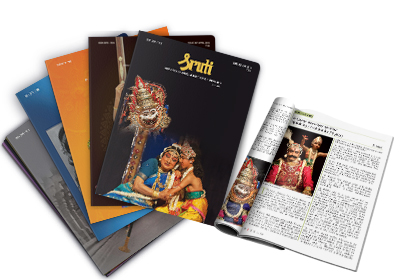COVER STORY
KARAIKUDI MANI - A RHYTHM OF HIS OWN
V. KARPAGALAKSHMI
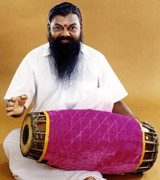
Mridangam maestro Mani was born on 11 September 1945 in Karaikudi, Tamil Nadu. His father T. Ramanatha Iyer, who hailed from Ganapati Agraharam near Kumbakonam, taught English and mathematics at the Sri Meenakshi Sundareswarar High School, Karaikudi. His mother R. Pattammal belonged to Budalur, and was related to well-known gottuvadyam vidwan Budalur Krishnamurthy Sastri.
Ramanatha Iyer, who had learnt music from Mazhavarayanendal Subbarama Bhagavatar as well as Swaminatha Iyer of Ganapati Agraharam, was a keen music enthusiast, well-versed in the bhajanai paddhati. Their home in Karaikudi was right opposite Ariyakudi Ramanuja Iyengar’s. In fact, Iyengar’s disciples K.V. Narayanaswamy and B. Rajam Iyer regularly partook of the simple breakfast of pazhaiyadu or rice soaked overnight in water and buttermilk, at Ramanatha Iyer’s household. The Nagarathars of Chettinad often sponsored concerts by the leading vidwans at Karaikudi; Ramanatha Iyer not only did not miss a single concert but also cultivated the friendship of the musicians and invited them home.
THE MS CENTURY
MY FIRST CONCERT WITH AMMA
R.K. SHRIRAMKUMAR
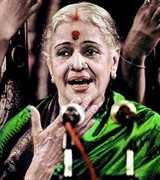
Lakshmi and Saraswati are in perfect unison in an enchanting oneness of sruti. The sruti box too blends well and Nada pervades. In this heavenly space springs a mesmerising experience, ecstatic and blissful – an experience that has brought joy to many, enriched lives and enlightened many a soul.
M.S. Subbulakshmi’s presence, contribution and impact in society, the musical arena in our country in particular, stand unparalleled. Her music, replete with the power of purity, dignity and integrity, strengthened artistic bonds across India, transcending caste, language, region and religion.
The realm of Carnatic music has seen many great musicians. However, with the advent of Amma, as she was addressed with reverential fondness, it crowned itself with global glory. Amma dedicated her life and soul to the cause of preserving, propagating and promoting this beautiful art form in its entire splendour.
NEWS & NOTES
REMEMBERING RUKMINI DEVI
IMPANA KULKARNI
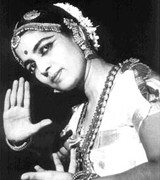
The year 2016 marks a milestone in Kalakshetra’s performance history. The Margazhi festival having mellowed down, the annual festival bagged a few extra performances, making it eleven days long. And the best part: all six parts of the Ramayana series choreographed by the founder Rukmini Devi Arundale since 1965 were once again shown in their entirety.
Young love
The festival commenced with Usha Parinayam – the story of young Usha’s marriage. Choreographed by Rukmini Devi in the Bhagavata Mela style in 1959, and interspersed with dialogues in Telugu, it narrates the story of how Banasura’s arrogance was subdued by the combined efforts of Lord Siva and Krishna; while his daughter, enraptured by Krishna’s grandson Aniruddha, takes the help of her sakhi Chitralekha to unite with him.
INTERVIEW
VIJAY KICHLU - MUSICIAN AND MUSICIAN-MAKER
VIJAY KICHLU IN CONVERSATION WITH MEENA BANERJEE
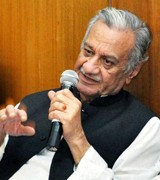
Pandit Vijay Kichlu received the prestigious Akademi Ratna Award at the Rashtrapati Bhavan from the President of India. This highest award constituted by the Sangeet Natak Akademi takes every arena of performing arts within its fold. Some of the luminaries to receive it have been great musicians or musicologists but Kichlu is, perhaps, the one in this list of leading lights who can stake a claim to be the ‘musician-maker’ of calibre in the capacity of an administrator-cum-guru.
Kichlu who turned 85 in September 2015 has made Kolkata his home since the 1950s. He reintroduced the age-old guru-sishya parampara within the four walls of an institution like the ITC Sangeet Research Academy in 1978, made it the only corporate sector backed home for a few handpicked gharanedar gurus from all over India, and offered them a life-long service to help groom their relatives or disciples who would live with them within the campus for days, months and years – as it used to be in ashrams of yore or under royal patronage. In this way he chiselled some top ranking Hindustani vocalists like Ajoy Chakrabarty, Rashid Khan, Mashkoor Ali Khan and Arun Bhaduri. Always on the lookout for erudite musicians, he encouraged talented young vocalists like Ulhas Kashalkar and veterans like Ustads Abdul Rashid Khan, Shafi Ahmed Khan, and dhrupad maestro Falguni Mitra to join as faculty and try to scale the peaks of music.

